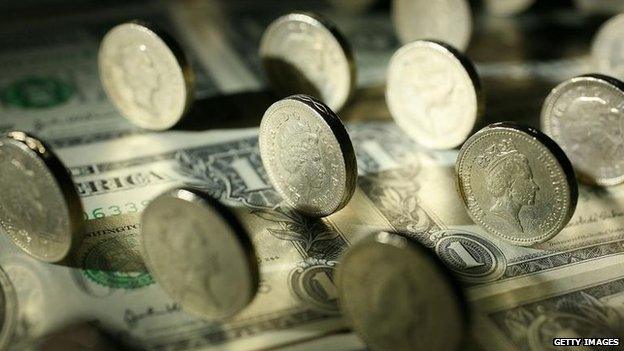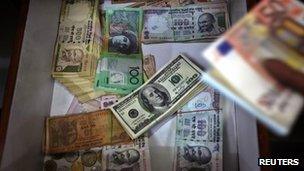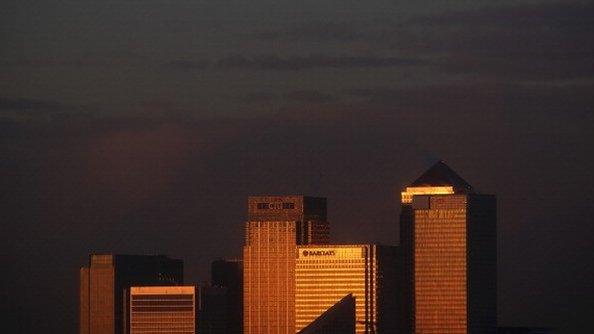Could 'front running' be the next banking scandal?
- Published

Banking regulators are looking at the way important financial benchmarks have been calculated, amid allegations that they have been manipulated by traders. Could the practice of "front running" swamp the UK banking industry in a new scandal?
Front running is a form of market manipulation, which on the currency markets, involves traders using insider information to play the markets and profit from institutional customers such as pension funds.
It is alleged those pension funds could be losing millions of pounds as a result, which would have an impact on members of the schemes.
A civil lawsuit lodged in the New York courts has been commenced against some US and UK banks including Barclays, HSBC and RBS. They declined to comment on the specific allegations raised in the US case.
However, there have been questions over many banks' practices on the foreign exchange markets ever since the Libor scandal emerged at the end of 2007,
And financial experts who have analysed trading on the foreign exchange market say they have identified numerous patterns which could be the result of front running.
Some $5.3 trillion (£3.24tn) is traded every day on the currency markets where the alleged malpractice is said to have happened.
Currency prices fluctuate so global businesses tend to take the exchange rate at 4pm London time each day. The so-called "London fix", also known as the "4pm fix", is a key financial benchmark.
Many big financial institutions ask their banks to transact their currency trades at the London fix.
The lawsuit in the US district court in New York alleges currency traders at eight global banks used inside information to try to manipulate the London fix.
Knowing a big order to buy a certain currency was due to be executed, dealers allegedly colluded to push up the price of that currency.
The traders boosted their profits by buying currency more cheaply, before the 4pm fix had been set, while still charging their customer the higher rate fixed at 4pm.
Just a small movement in the exchange rate on a $1bn (£610m) deal could result in the customer losing $1m (£610,000).
Alberto Thomas is a partner at London-based Fideres, a consultancy that tries to identify suspicious movements in the markets. He has provided expert analysis for the US lawsuit.
Over a 10-year period from 2003, he found signs of "anomalous behaviour" around the time of the 4pm fix on between 10% and 20% of occasions.
Mr Thomas says: "By knowing in which direction the customers will have to trade, the dealer can effectively extract a profit out of that information.
"The market in foreign exchange - as in other financial markets - is very concentrated in the hands of 10 or 15 institutions."
He says traders communicate through chat rooms and instant messaging, giving them the potential to rig the market.
"Through these channels, the traders can share information and they know overall in which way customers are going to fix at the trade. And by sharing this information, they can effectively affect the market by all trading in the same direction."
In a separate move, regulators in the UK, other parts of Europe and the US are looking at whether the currency exchange markets have been rigged. They are remaining tight-lipped about the course of their enquiries so far.

London is the global centre of currency trading
But Martin Wheatley, chief executive of the UK's Financial Conduct Authority, says: "Front running isn't acceptable. It's not acceptable in other markets and it never has been.
"We are doing an investigation into aspects of the foreign exchange market and we have not completed that yet. I don't think I can pre-empt the conclusions of that investigation now."
HSBC refused to comment.
Barclays said it was reviewing foreign exchange trading covering several years leading up to 2013 - and is co-operating with the authorities.
RBS said it too was conducting its own investigation into the way it operated in the foreign exchange markets and was looking at emails and chat room transcriptions and was also doing that in conjunction with regulators.
Find out more by listening to File on 4 at 20:00 BST on Tuesday, 23 September on BBC Radio 4.
- Published23 December 2013

- Published2 June 2014